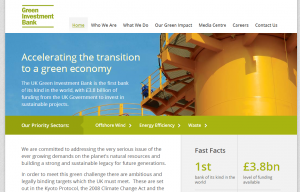
A speech in committee on the so-called Green Investment Bank, which appears to have had a greater impact than I had forseen:
4.45 pm
Steve Baker (Wycombe) (Con): I fear that we are, once again, gathered together to make our constituents poorer and to promote special-interest rent seeking. I am rather surprised that we are gathered together in this Committee. My right hon. Friend the Prime Minister has pointed out that Opposition Members wish to use direct intervention in the electricity price system and correctly identified that as socialism—Mr Iain Wright: The hon. Gentleman talks about direct intervention in the energy markets. Does he think there is any difference between what my right hon. Friend the Leader of the Opposition has said regarding freezing energy bills and the commitment given by the Government regarding the nuclear industry?
Steve Baker: The answer is, of course, no. If I can move on, I think the hon. Gentleman will find that the remarks I am about to make will satisfy him.
The Prime Minister also talked about how green taxes were raising energy prices for those least able to pay them. I had rather hoped, therefore, that this would be the moment when the Government thought again about the UK Green Investment Bank as part of their broader strategy. I have watched these proposals advance with some despair. I felt that there were only so many battles one could fight and that this one was last, but the Prime Minister has inspired me to believe that it is possible for common sense to return.
In designating this nationalised body, we will enable it to spend £3.8 billion of taxpayers’ money to create special interests. Unfortunately, the proposal has had draped around it the language of the market and talk about profitability. However, the hon. Member for Hartlepool prompts me to note that we sometimes forget that the purpose of the market is to allow the price system to indicate where entrepreneurs should direct their efforts and their capital best to serve the interests of the public. However, green entrepreneurs will find themselves directing scarce capital and their entrepreneurial efforts into the areas officials and politicians think best, rather than towards serving the public. While we may talk of profitability, the very use of such language in relation to a state-owned institution meeting state policy objectives undermines the entire language of the market.
I am glad that the bank—we call it a bank—will not be able to borrow, because I note from the explanatory memorandum that it will report its accounts under international financial reporting standards. I have said elsewhere at some length how dangerous IFRS can be in terms of up-fronting profits that have not yet been realised and making imprudent provision for losses. I am therefore delighted that the bank will not be borrowing, although I am puzzled as to the extent to which it will be a bank.Previously, I have reluctantly supported the Government on this proposal, and I do not propose to divide the Committee today. However, should the Committee divide, I do not imagine that I could vote with the Government—indeed, for the benefit of the Minister, who is looking at me in a puzzled manner, let me say that I would vote against the instrument.
It is increasingly clear that we have corrupted the principles of markets to direct scarce capital into loss-making projects, which would not go forward if things were determined by the general public expressing their view by buying and selling. These policies do not serve the interests of the poorest and most vulnerable, and we should take this opportunity to put a stop to them.